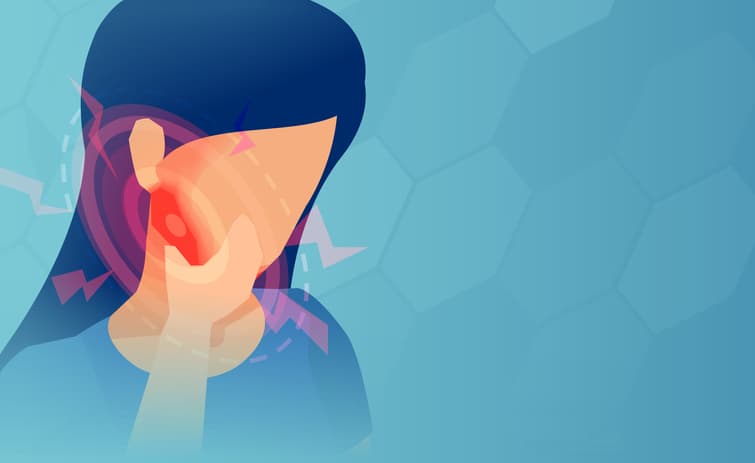
What Is Your Temporomandibular Joint?
The temporomandibular joint, or TMJ, is located just in front of the lower part of the ear. Just like your hip and shoulder, the TMJ is a ball-and-socket joint. The ball (called the condyle) comes out of the socket and moves forward when the mouth opens wide and goes back into place when the mouth closes.
Like all other ball-in-socket joints, your TMJ can dislocate and cause problems. TMJ dislocation occurs when the condyle moves too far. Sometimes, it can get stuck in front of a section of bone called the articular eminence, which inhibits it from moving back into place. This dislocation usually happens when the ligaments that normally keep the condyle in place are somewhat loose. The surrounding muscles often go into spasm and hold the condyle in the dislocated position.
What Causes TMJ Dislocation?
TMJ dislocation can happen for many reasons, but some of the most common ones include:
- Opening your mouth too far
- Accidentally tripping or falling
- After a dental or medical procedure
- Work accident
- Car accident
- Sports or recreational injury
What Are the Symptoms of a Dislocated Jaw?
If you think you might have a dislocated jaw, here are some of the symptoms to look out for:
- The jaw is locked in an open position
- Jaw protrudes forward
- Stiffness and difficulty closing your mouth
- Pain in the face and/or jaw
- Drooling caused by the inability to close your mouth
- Overbite or underbite that feels crooked
- Problems talking
It’s common to experience discomfort and pain in the face or jaw until the joint returns to its proper position. However, even after the jaw moves back into place, it can be tender for up to a few weeks.
When Should I Call a Professional?
If your TMJ dislocates, visit your dentist, dental specialist or hospital emergency room right away to have the joint put back in place. In some cases, you might get a referral to an oral and maxillofacial surgeon for treatment.
What Is the Treatment for a Dislocated Jaw?
Before your TMJ can be put back into its normal position, the muscles around it need to relax. Some people need local anaesthetic in the form of an injection to make this happen. After the injection, you might get a muscle relaxant to stop any spasm.
When the jaw muscles are relaxed enough, your doctor or dentist can move the condyle back into the correct position. He or she will pull the lower jaw downward and tip the chin upward to free the condyle. Once free, the ball will be guided back into its rightful home in the socket. In some cases, your dentist might give you a bandage to limit opening your jaw too wide and reduce extreme movements.
After having your jaw put back into place, it’s best to follow a soft or liquid diet for several weeks afterwards. Eating liquid or easy-to-chew foods reduces jaw movement and lowers stress on the jaw so the surrounding muscles can recover. Avoid foods that are hard to chew, like tough meats, carrots, hard candies and ice cubes. Also, be careful not to open your mouth too wide.
How Can You Prevent Jaw Dislocation?
Unfortunately, if your ligaments surrounding your jaw are loose, TMJ dislocation can continue to happen. If you find yourself in this position, the best way to keep your jaw from dislocating too often is to limit its range of motion.
- Helpful Tips: Place your fist under your chin when yawning to keep your mouth from opening too widely, use a mouth guard during sports and recreational activity
If dislocation continues to be a serious problem, talk to your dentist or dental specialist about conservative surgical treatments that can help prevent the problem from returning. In rare cases, some people have their jaws wired shut for a time, which causes the ligaments to get tighter and restricts their movement.
The chances are that if your jaw is dislocated, you can easily have it put back into place with the help of a dentist or dental specialist. Your best bet is to keep calm and pay attention to your habits when it comes to your jaw movement. With a little extra care, your smile will be right back on track, literally.
